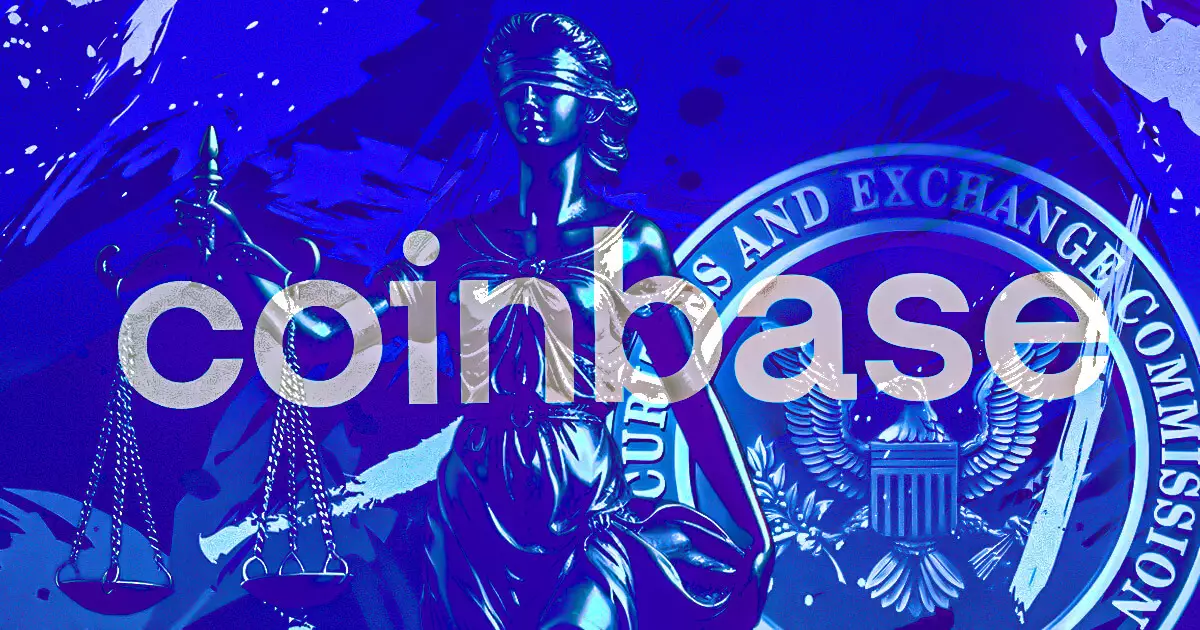Coinbase, one of the leading cryptocurrency exchanges, recently reached an agreement to dismiss an enforcement case initiated by the Securities and Exchange Commission (SEC). This resolution, pending approval from the SEC, has brought Bitcoin prices back up over $99,000, marking a significant moment in the ongoing dialogue between cryptocurrency companies and regulatory bodies. The case had evolved into a complex legal battle that raised critical questions about regulatory powers, particularly concerning the classification of digital assets.
Brian Armstrong, the CEO of Coinbase, articulated his belief that the SEC’s attempts to delist certain assets were not only unfounded but also overstepped its regulatory authority. He characterized the initial lawsuit as a challenge to the fundamental business model of Coinbase, reflecting broader concerns regarding how cryptocurrencies are regulated and what defines them as securities. The outcome of this case could serve as a pivotal moment in shaping the legal framework governing digital assets.
The settlement agreement has significant implications for the cryptocurrency industry. According to Armstrong, the resolution will involve no financial penalties and will not necessitate any changes to Coinbase’s business practices. This outcome is critical, not merely for Coinbase, but for the wider crypto ecosystem. It reinforces the idea that cryptocurrency companies can operate within the parameters of existing laws without succumbing to overly aggressive regulatory tactics.
Moreover, Armstrong has framed this legal victory as a validation of Coinbase’s advocacy for a more clearly defined regulatory landscape. He emphasized that the litigation was not just about Coinbase’s operational model but about defending an industry that should be governed by established laws rather than subjective interpretations by regulatory agencies. This sentiment resonates with many players in the crypto space who feel that regulatory clarity is vital for fostering innovation while ensuring consumer protection.
The recent developments surrounding Coinbase’s case prompt a wider examination of SEC policies and the overall regulatory framework affecting cryptocurrencies. Armstrong’s comments hint at a transformative moment where legacy regulatory practices are being scrutinized more fiercely than ever. The outcome of this case could act as a precedent for future legal battles in the digital asset space, shaping how courts and regulators interpret existing laws related to digital currencies.
The controversial role of figures such as Gary Gensler, the previous head of the SEC, has also surfaced in discussions surrounding the case. Critics, including Armstrong, suggest that his leadership was marked by excessive regulation that could stifle innovation. In contrast, proponents of stronger regulatory measures argue that tighter controls are necessary to protect investors and foster market integrity.
Looking forward, the agreement signifies more than just a resolution of a single case; it represents a potential roadmap for future legislative efforts aimed at clarifying crypto regulations. Many stakeholders have expressed the need for comprehensive guidelines that delineate the boundaries of regulatory oversight without hampering market participation and innovation.
As policymakers and industry players digest the implications of the Coinbase settlement, there may be renewed focus on crafting laws that balance the need for consumer protection with the flexibility required for technological advancement. The outcome could potentially inspire more legislative initiatives aimed at defining the digital asset landscape, encouraging a symbiotic relationship between regulators and cryptocurrency firms.
The dismissal of Coinbase’s enforcement case against the SEC could represent a watershed moment in the evolving saga of cryptocurrency regulation. By defending itself against the SEC’s aggressive stance, Coinbase has not only safeguarded its own interests but advanced the cause of a broader industry seeking clarity and fairness in regulation. As both market participants and regulators contemplate the future, the lessons learned from this dispute underscore the importance of an ongoing dialogue that prioritizes innovation while maintaining investor safeguards. The unfolding narrative of cryptocurrency regulation will likely continue to reflect the complex interplay between law, market dynamics, and consumer protection well into the future.

